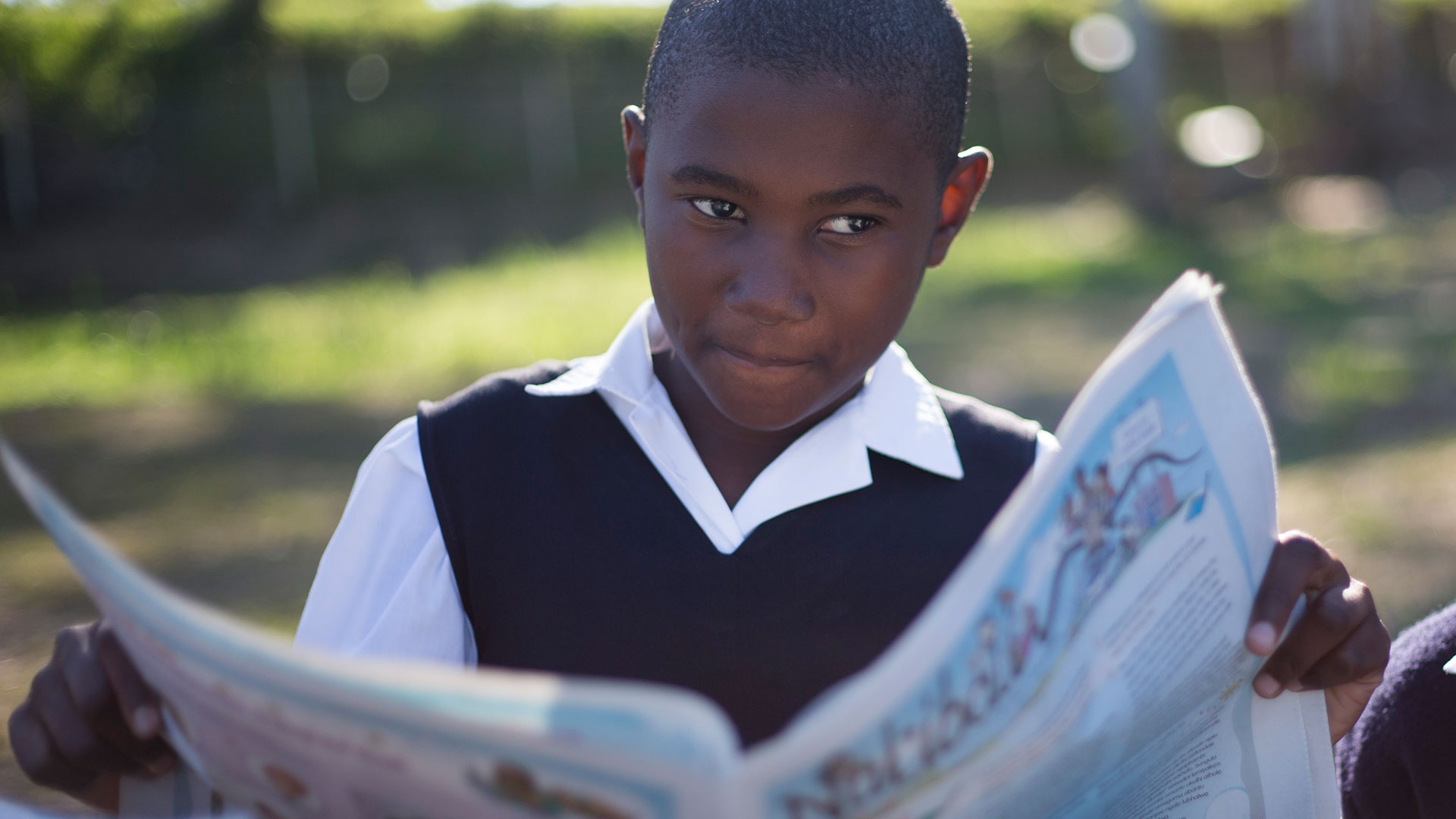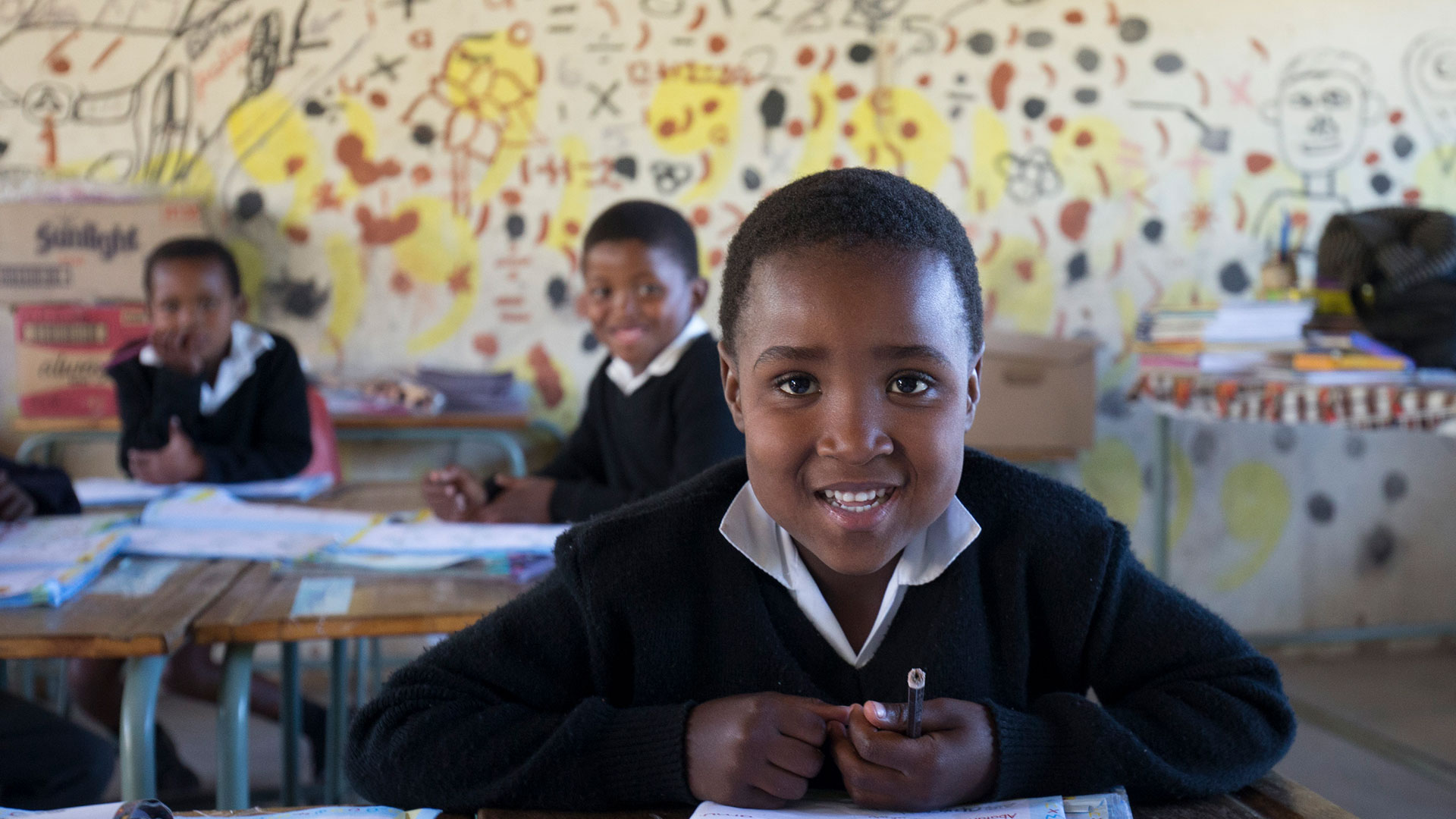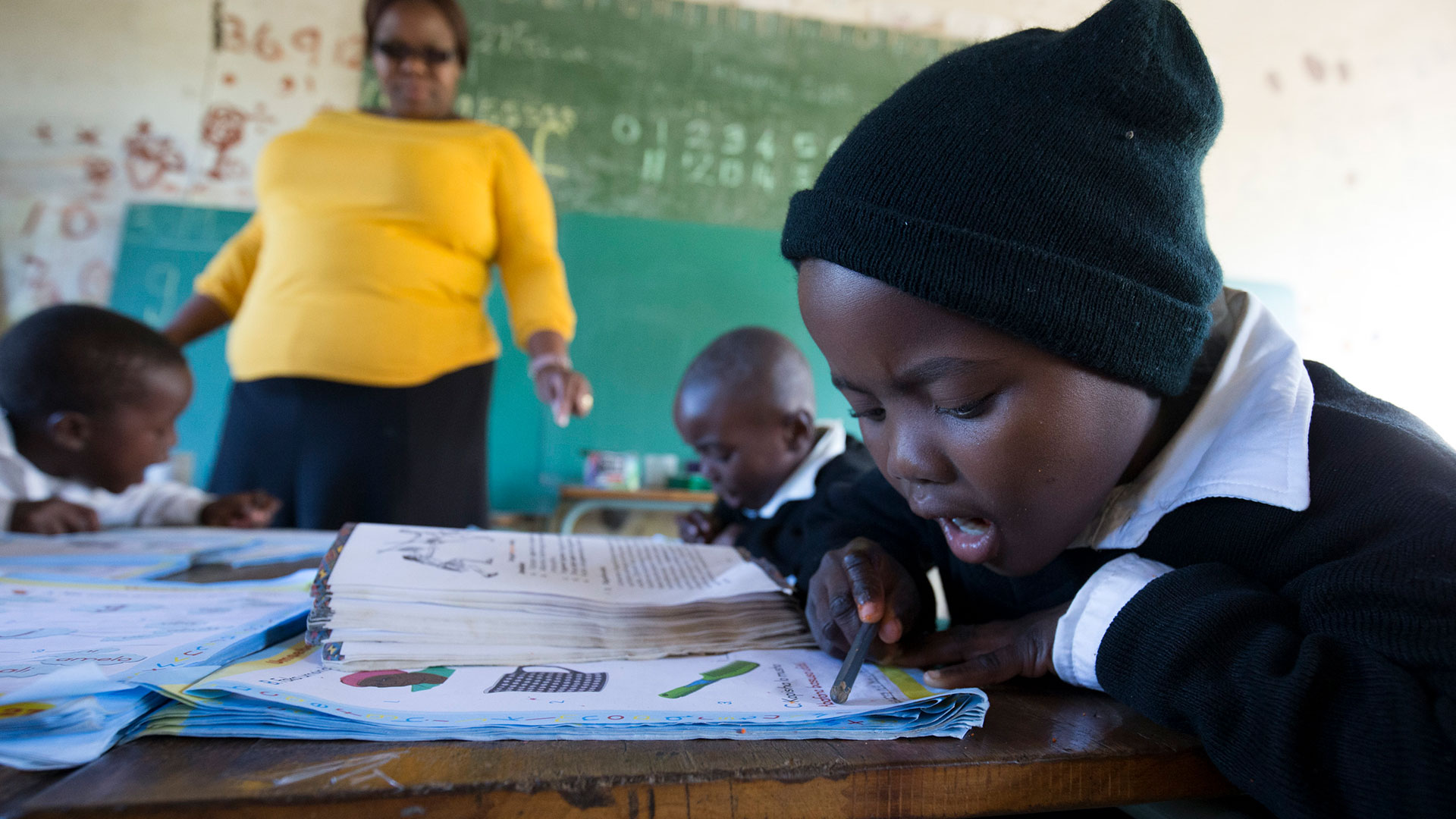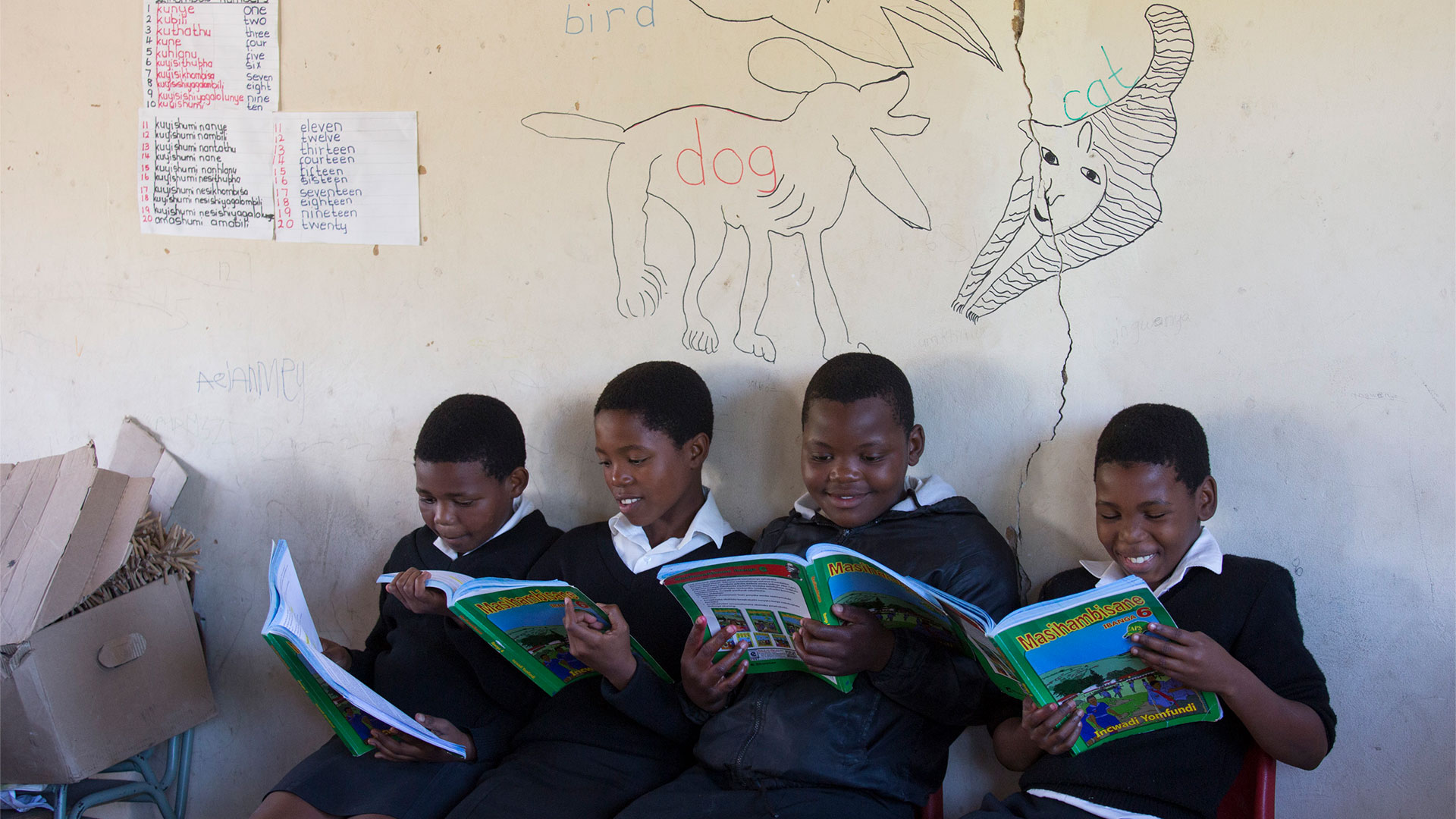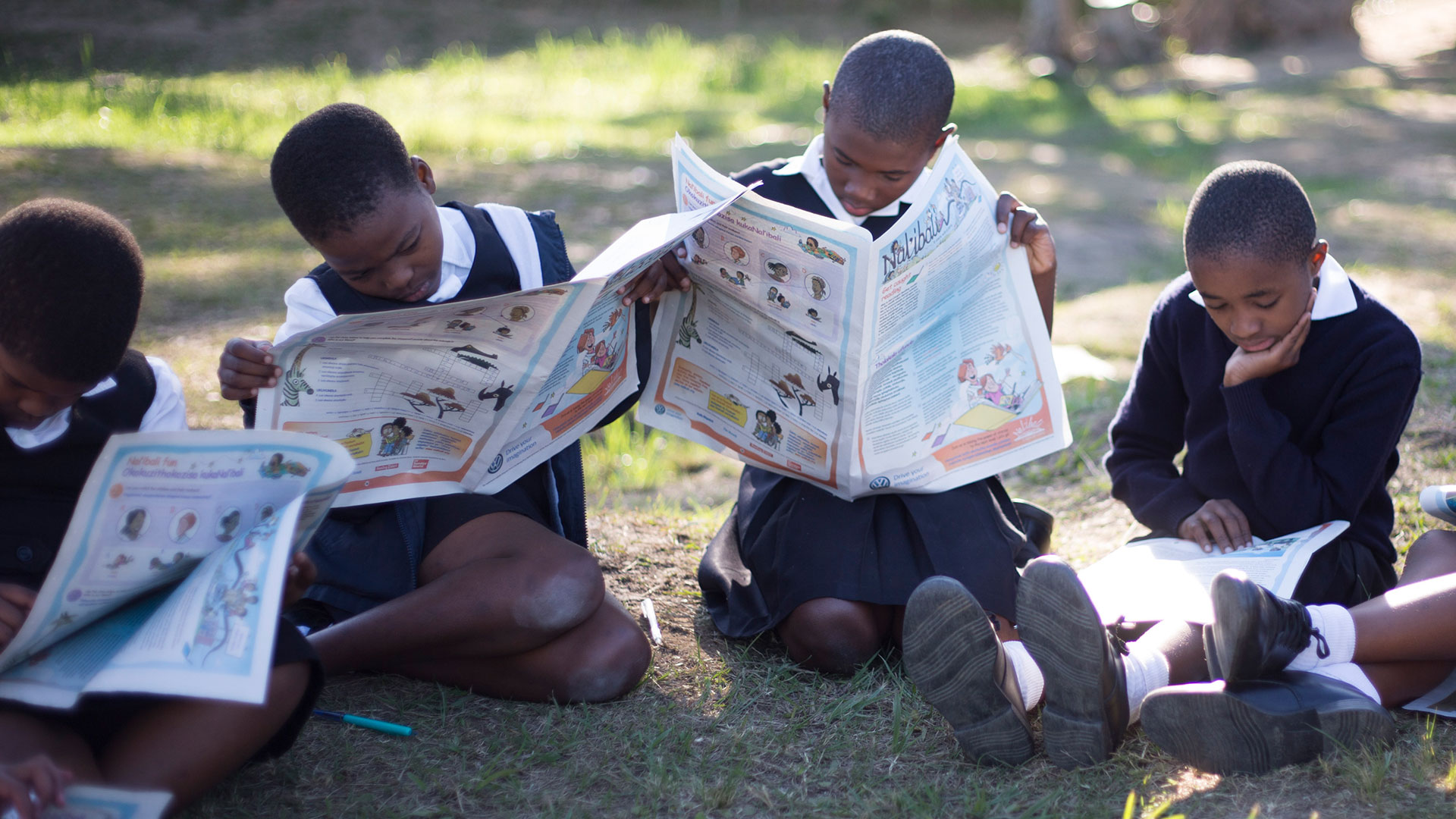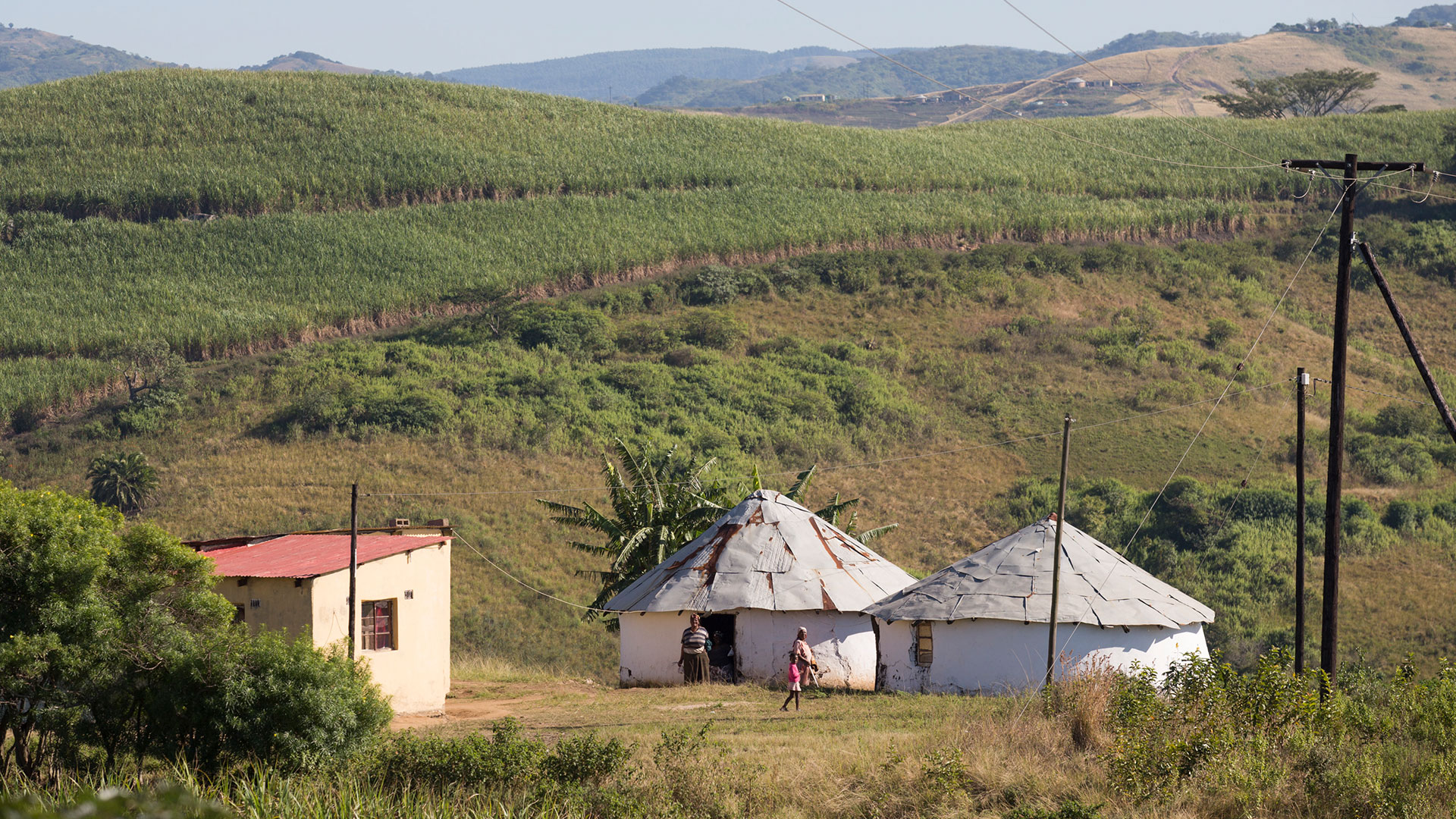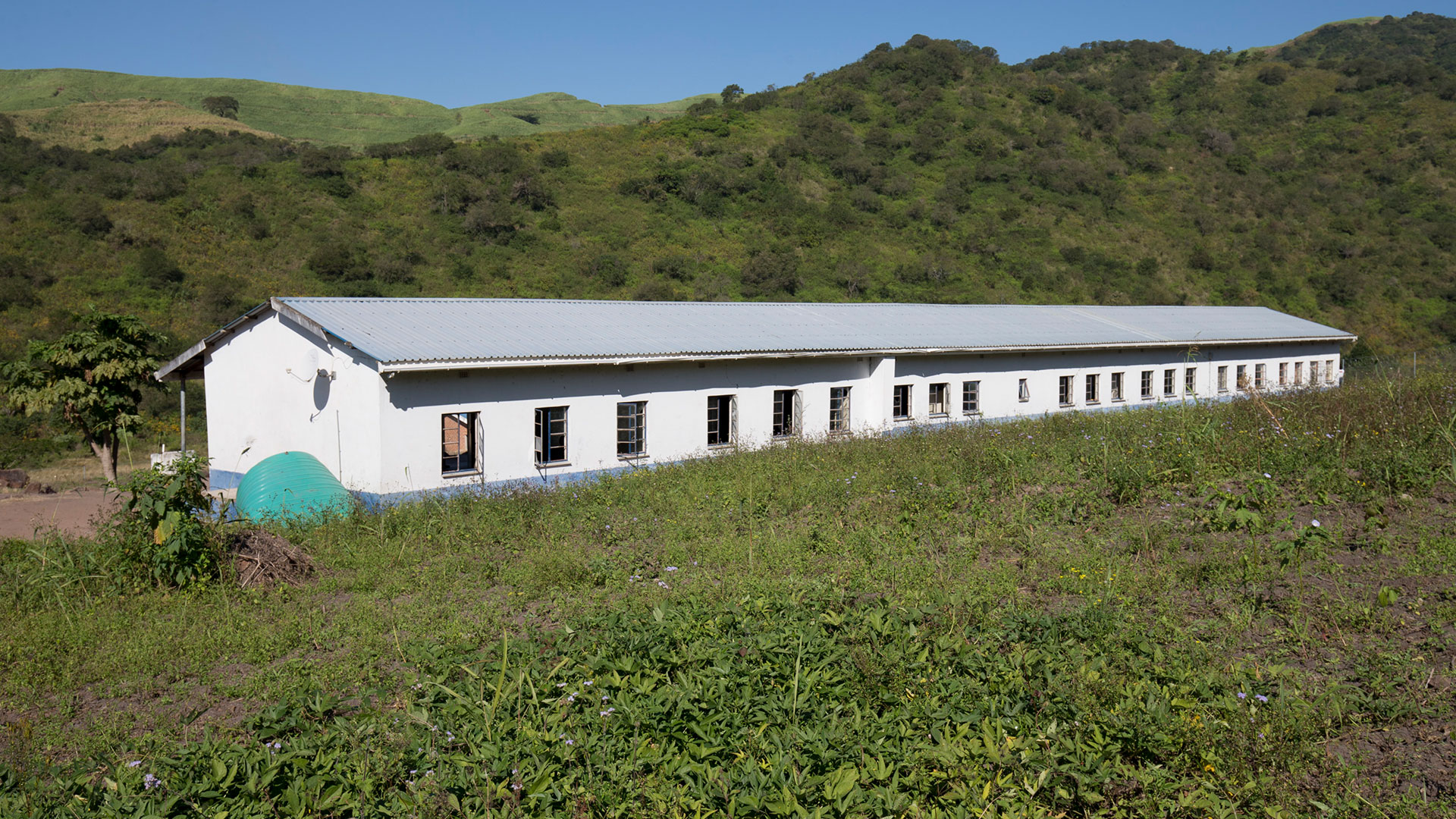CHAPTER 4:
Story Powered Schools: celebrating the end of an era
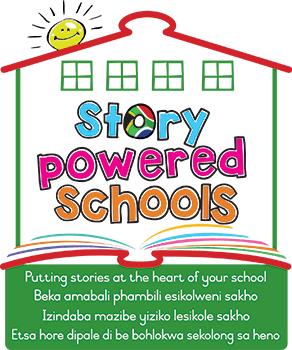
In September 2019, our three-year Story Powered Schools project, funded by the United States Agency for International Development (USAID), drew to a close. Over the course of the project, Nal’ibali worked to spark and sustain a culture of reading at 720 rural primary schools in the Eastern Cape and KwaZulu-Natal.
Rural Primary Schools Reached
The project took a multi-pronged approach to growing a culture of reading for enjoyment in schools and the surrounding communities. Over three years, we trained 2,414 teachers and 6,933 community members to support children’s literacy development.
Teachers Trained
Community Members Trained
We distributed 118,760 high-quality storybooks and 3.38 million Nal’ibali bilingual newspaper supplements, significantly increasing the availability of high-quality African language reading material in schools and homes.
Storybooks Distributed
Supplements Distributed
Project schools registered 2,337 reading clubs that reached 58,659 children. 478 of these reading clubs ran for more than 1 year.
Reading clubs registered
We created jobs for 179 Story Sparkers; for many, it was their first job. Several found further employment at schools after the project ended or went on to study education.
Jobs created
We also learned a great deal from the external evaluation, a randomised controlled trial (RCT) commissioned separately by USAID. Unfortunately, the evaluation did not find that children in the treatment schools had increased reading skills or reading behaviours compared to children in control schools, though it did find some positive impact on access to reading materials in schools and homes. The sub-population of children in reading clubs reported reading on their own at home more frequently. In one province, children in reading clubs had higher fluency in mother tongue and better productive listening comprehension than comparison learners.
These findings may have been impacted by constraints in the evaluation design. Many sampled teachers and learners did not participate in the programme directly, and endline assessments were done a full year after the project exited in schools. As such, any potential positive effects may have been harder to detect.
Still, we learned useful lessons, including that Nal’ibali should simplify guidelines for Story Sparkers, limit expectations of what a Story Sparker can achieve within the school context, and emphasize reading aloud, forming reading habits and children handling text independently as key goals of the programme. We are applying these lessons in our approach going forward.

